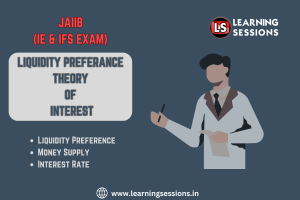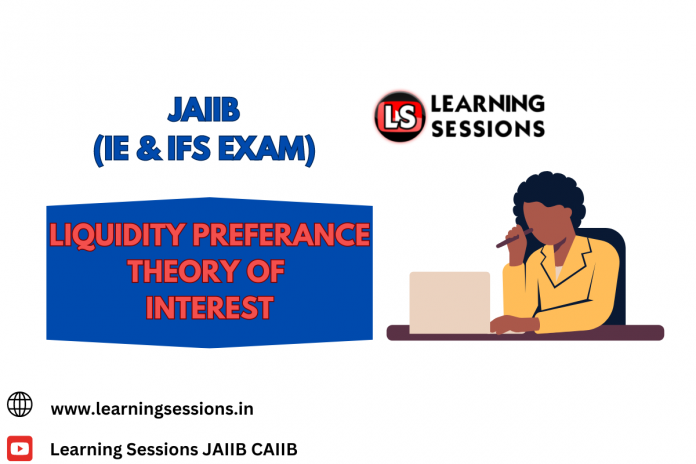The Liquidity Preference Theory of Interest carries major relevance in banking and financial management, it is the primary part of JAIIB (Junior Associate of Indian Institute of Bankers) exam. Learning Sessions’ article provides a thorough case study on the role of this theory, covering its key concepts, risks, benefits, and management techniques that are significant for banking professionals as well as personal finance advisors. The Liquidity Preference Theory of Interest, developed by J.M. Keynes, is a significant concept in the domain of macroeconomics and modern finance. This theory explains how the demand for liquidity (cash) influences the determination of interest rates in an economy.

📚 JAIIB Study Resources 📚
👉 Check Here
👉 Check Here
👉 Check Here
👉 Get Tests Here
👉 Check Here
DOWNLOAD PDF LIQUIDITY PREFERANCE THEORY OF INTEREST -CASE STUDY
The key Components of the Theory are:
-Liquidity Preference
-Money Supply
-Interest Rate
The criticisms and limitations of this theory are the assumption that the money supply is controlled solely by the central bank, but in reality, external factors like global capital flows and government spending also affect liquidity and interest rates. The theory primarily explains short-term interest rate behavior and may not fully capture long-term interest rate dynamics driven by structural economic changes. The theory does not specifically consider the impact of inflation on interest rates. An increase in money supply to lower interest rates may lead to higher inflation, which can ultimately push up interest rates in the long run. For the extensive preparation of candidates, get details through our YouTube videos for JAIIB IE & IFS Module wise Syllabus with explanations and tips to help candidates in their preparation journey.
You may also like these JAIIB Case Studies:
JAIIB | IE & IFS | FINANCIAL MARKET
JAIIB | IE & IFS | PRICE DISCOVERY
Taking everything into account about this article, The Liquidity Preference Theory of Interest provides valuable knowledge on how interest rates are determined by the demand for money (liquidity) and the supply of money in the economy. In India, RBI actively uses this theory to manage liquidity and influence interest rates. The case study provided by Learning Sessions, of the global financial crisis and the pandemic clarify the practical application of the theory in the Indian financial system, making it an essential concept for banking professionals. Learning Sessions provides additional information about JAIIB IE & IFS FUNCTIONS OF FINANCIAL MARKET by giving examples of real life scenarios.
Learn more about this case study through our YouTube channel and PDF.
Get access to our Telegram Channel for free Pdfs of JAIIB.





